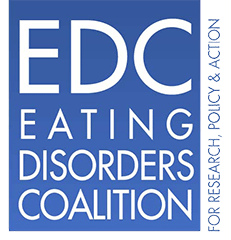In this digital age, social media is a big part of teen life. TikTok is one of the most popular platforms and has endless streams of content. Many enjoy TikTok for entertainment and creativity, but a growing concern is emerging about its addictiveness, especially in teens. For many teens, their need to consume content has gone from casual to compulsive. This “TikTok addiction” has serious negative consequences for mental health, sleep, grades, and social development.
At SunCloud Health, a behavioral health treatment provider in the Chicago area, we treat behavioral health issues including technology and social media addictions in teens. We offer Partial Hospitalization Programs (PHP) and Intensive Outpatient Programs (IOP) to help teens break free from the cycle of addiction. Let’s talk about TikTok addiction in teens and how SunCloud Health can help teens overcome this growing problem.
Why Is TikTok So Addictive?
TikTok is designed to keep you hooked. The algorithm shows you content based on your engagement patterns, a never-ending stream of highly personalized and entertaining videos. For teens whose brains are still developing, the instant gratification that TikTok offers is impossible to resist.
TikTok addiction is driven by its dopamine-triggering features. Each like, share, and view on TikTok creates a feedback loop that releases dopamine, the brain’s “reward chemical.” Over time, teens can become addicted to this dopamine rush and crave more and more time on the platform. This creates a dependency that leads to compulsive scrolling where teens can’t stop even though they know the consequences of too much screen time.
Plus, TikTok’s short video format makes it even more addictive. Each video is quick, under a minute long, so teens don’t have to invest much time. The brevity of content keeps them entertained and always wanting more. The ability to scroll endlessly without having to wait for long loading content or dive into long articles makes TikTok highly addictive especially for teens.
The Consequences of TikTok Addiction in Teens
Compulsive need to be on TikTok affects more than just screen time. Teens addicted to TikTok face many negative consequences to their mental and physical health, grades, and relationships. Here are some of the risks:
- Mental Health Decline
Spending too much time on TikTok has been linked to worsening mental health outcomes in teens. Teens who are addicted to TikTok are more likely to experience symptoms of anxiety, depression, and low self-esteem. Constant exposure to curated, often-unrealistic life on TikTok can lead to feelings of inadequacy, body image issues and peer pressure.
The fast-paced, high-energy content can also lead to information overload and make it hard for teens to focus or relax. As their brains get wired to crave the constant stimulation of TikTok, teens may feel bored or empty when they are offline. This can create a vicious cycle where teens use TikTok as a way to escape negative emotions and then the platform makes their mental state worse.
- Sleep Disturbance
One of the symptoms of TikTok addiction in teens is poor sleep hygiene. Teens find themselves scrolling through TikTok late at night, unable to disconnect even when they know it’s bedtime. The blue light from their smartphones and other devices further disrupts their circadian rhythms and makes it hard to fall asleep and maintain a healthy sleep cycle.
Sleep deprivation can worsen many of the mental health issues above and also impairs memory, focus, and cognitive function. As teens lose sleep, they can’t perform academically and socially and it creates a ripple effect that affects many areas of their life.
- Academic and Social Consequences
Teens addicted to TikTok often prioritize screen time over their responsibilities and, as a result, their academic performance declines. Homework, studying, and other educational activities are neglected as teens spend more time on the platform. TikTok addiction can also erode face-to-face communication skills as teens become more dependent on virtual interactions than real-life socializing.
For some teens, their social life becomes all about TikTok trends and they feel more pressure and need to stay “on trend” online. This hyper focus on their online presence can cost them developing meaningful in person relationships, which are so important for emotional and psychological development during adolescence.
Signs of TikTok Addiction
Parents, teachers, and caregivers need to be aware of the signs of TikTok addiction to intervene early and help teens get the support they need. Here are:
- Compulsive use: Teens feel the need to check TikTok all day, even in inappropriate places, such as during class or family meals.
- Withdrawal symptoms: When teens can’t access TikTok, they get irritable, anxious, or agitated.
- Neglect of responsibilities: Addiction leads to decline in academic performance, not completing assignments, or neglecting personal hygiene.
- Sleep issues: Difficulty in falling asleep, staying up late to use TikTok, or excessive daytime tiredness.
- Isolation: Teens withdraw from family activities or social events to spend time on TikTok.
- Loss of interest in hobbies: Previously enjoyed activities or hobbies take a back seat to time spent on TikTok.
If you see these signs, it’s time to address the issue before it gets worse. That’s where SunCloud Health comes in, we provide the support and tools for teens to take back control of their life.
How SunCloud Health Can Help Teens with TikTok Addiction
At SunCloud Health we understand the complexities of behavioral health challenges, including the unique issues of technology addiction. Our adolescent programs are designed to help teens struggling with social media addiction; we provide them with a comprehensive treatment plan that addresses the root causes of their addiction and teaches them healthy coping skills.
- Partial Hospitalization Program (PHP)
Our PHP is for teens who need structured support but don’t need inpatient care. In this program, teens receive intensive therapy during the day and go home in the evenings. This way they can maintain a sense of normalcy while addressing their addiction in a controlled environment. Our PHP includes individual therapy, group therapy, and family counseling for a holistic approach to recovery.
- Intensive Outpatient Program (IOP)
For teens who need a more flexible schedule, our IOP offers several hours of therapy a few days a week. This program is designed to fit around school schedules so teens can continue their education while getting the help they need to overcome their TikTok addiction. IOP at SunCloud Health focuses on building resilience, self-esteem, and teaching teens to develop healthy relationship with technology.
- Cognitive Behavioral Therapy (CBT)
One of the main components of our treatment is Cognitive Behavioral Therapy (CBT), an evidence-based approach that helps teens identify and change the negative thought patterns that drive their addiction. CBT can teach teens to manage triggers, reduce impulsivity, and develop a healthier relationship with technology.
- Family Involvement
We believe family involvement is key to a teen’s recovery. At SunCloud Health, we work with families to educate them about the effects of TikTok addiction and how they can support their teen throughout the treatment process. Family therapy sessions are part of our approach to improve communication, rebuild trust, and create a supportive home environment.
Take Back Your Life
TikTok addiction in teens is a big deal with big consequences. It’s not just about setting screen time limits – it’s about addressing the underlying mental health and behavioral issues that drive the addiction. At SunCloud Health, we help teens break free from the cycle of TikTok addiction and build a healthier more balanced life. With our PHP and IOP programs, teens struggling with technology addiction can get the help they need to take back control and thrive online and offline.





